Asthma:
Asthma Symptoms & Signs You Should Look Out For


Asthma is a long-term condition that causes breathing difficulties. It is caused by inflammation (swelling) and spasm of the breathing tubes that transport air into and out of the lungs. This makes the tubes extremely sensitive, causing them to narrow. It may happen randomly, or when exposed to a trigger, for example, dust or pollen. Here is more detailed information on what asthma is.
Symptoms can range from moderate to severe and often begin in childhood, however, they can also appear for the first time in adulthood. With that in mind, knowing what to look out for is important if you suspect you or someone in your care has asthma.
Asthma Symptoms
The most typical signs of asthma are:
-
Wheezing (whistling breathing sound)
-
Breathlessness
-
Feeling of tightness in the chest
-
Coughing
These symptoms can vary from mild to severe and can continue for an hour, a day, or until they are treated.
Very rarely, asthma can be fatal. This is preventable, which is why it's crucial to take your medication as prescribed by your doctor.
If your symptoms:
- Increase in intensity or frequency
- Are not settling, even with treatment
- Worsen at night or in the morning
- Appear to be brought on by a trigger
You should speak with a doctor to review your asthma management plan.
Asthma Symptoms In Children
While asthma symptoms can appear at any age, most children experience their first symptoms by age five.
Not all asthmatic children wheeze, and not all children who wheeze have asthma. Chronic coughing with asthma may be the only obvious symptom, and a child’s asthma may go unnoticed if the cough is mistaken for recurrent bronchitis. If you are unsure, you should speak with a GP.
It is very difficult to make a formal diagnosis of asthma before the age of 5 years, as most children will not be able to appropriately and reliably perform the required tests to make a formal diagnosis. However, appropriate assessment and a trial of asthma treatment can be arranged if necessary.

Rare Or Uncommon Asthma Symptoms
Not everyone with asthma experiences the typical symptoms of coughing, wheezing, and shortness of breath.
Individuals may experience uncommon asthma symptoms that might not appear to be related to asthma. The following are some ‘unusual’ asthma symptoms:
-
Fatigued by quick breathing
-
Inability to exercise correctly
-
Sleeping difficulties or nighttime asthma
-
Anxiety
-
A persistent cough without wheezing
Other illnesses, such as bronchitis, vocal cord dysfunction, and even heart failure, can resemble asthma symptoms.
What Are The First Signs Of Asthma?
The first signs of asthma are referred to as early warning signs. These are changes that occur when there is increased inflammation in the airways and are an indication that your symptom control is deteriorating and needs to be reviewed.
In general, these symptoms are not severe enough to prevent you from carrying on with your everyday activities. However, by identifying these symptoms, you can stop an asthma attack or prevent it from worsening. The following are early warning indicators of an asthma attack:
- Coughing frequently, especially at night
- Difficulty sleeping
- Shortness of breath or easily losing your breath
- Exercising and feeling really exhausted or weak
- After-exercise wheezing or coughing
- Tired, easily irritated, grumpy, or moody
- Decline in peak flow readings
- Signs of cold or allergy, e.g., sneezing, runny nose, cough, nasal congestion, sore throat, headache
If you notice these you should consult your asthma management plan for advice on how to adjust your treatment (e.g., increase your preventer inhaler), or speak with a doctor for advice.
If these symptoms persist and are not managed, you will be at increased risk of a potentially serious acute asthma attack.
Symptoms Of An Acute Asthma Attack
Symptoms of an acute asthma attack do not always occur suddenly. They often appear gradually over a few hours or days and can then become severe quite suddenly if appropriate treatment is not commenced.
The following are symptoms of a severe asthma attack:
-
Couching
-
Severe wheezing
-
Chest pain, tightness, or pressure
-
Breathlessness (often so much so that it can affect sleeping, eating, or speaking)
-
Fast, short breathing
-
Fast heartbeat
-
Feelings of anxiety and panic
-
Drowsiness, confusion or dizziness
-
Fatigue
-
Blue lips and/ or fingers
-
Fainting
Here is more information on asthma attacks.
How Should I Manage Asthma Symptoms?
Although there is no cure for asthma, treatments are available to help reduce symptoms and allow you to live a normal, healthy life.
The main treatment for asthma is inhalers, which are devices which require you to breathe in the medication so that it enters your lungs. There are 3 types:
-
Preventer inhalers – contain steroid medication to reduce inflammation in the airways. These are the most important part of ongoing asthma symptom management!
-
Reliever inhalers – quick acting to reduce acute asthma symptoms
-
Combination inhalers – combination of the aforementioned two inhalers
If your asthma is severe, you may also need other treatments. You should also have an asthma action plan. This is usually developed with a personal asthma nurse or a GP. The action plan would include information about your medications, how to monitor your condition, and what to do if you have an asthma attack.
If you do not yet have an asthma action plan, you should speak to a GP to arrange one.

Repeat Prescription
Asthma Treatment
How Can I Get A Prescription For Asthma Treatment
Webdoctor.ie's online prescription service makes it quick and easy to request Asthma Treatment.
To request a prescription, you just need to fill in a short and secure questionnaire. Then, one of our Irish-registered doctors will review your request to make sure it is safe and suitable for you. Once approved, we’ll send your prescription to an Irish pharmacy of your choice.
There’s no need to make an appointment with a GP unless it is your first time seeking a prescription for asthma. If this is the case, you can book an online video consultation with one of our experienced GPs. There, we can help you find the treatment for you.
How It Works
Through an online medical questionnaire, face-to-face video consultation or home health test, our online doctors will review your case and prescribe the best treatment for you.

Step 1
Online Questionnaire

Step 2
Medical Review
